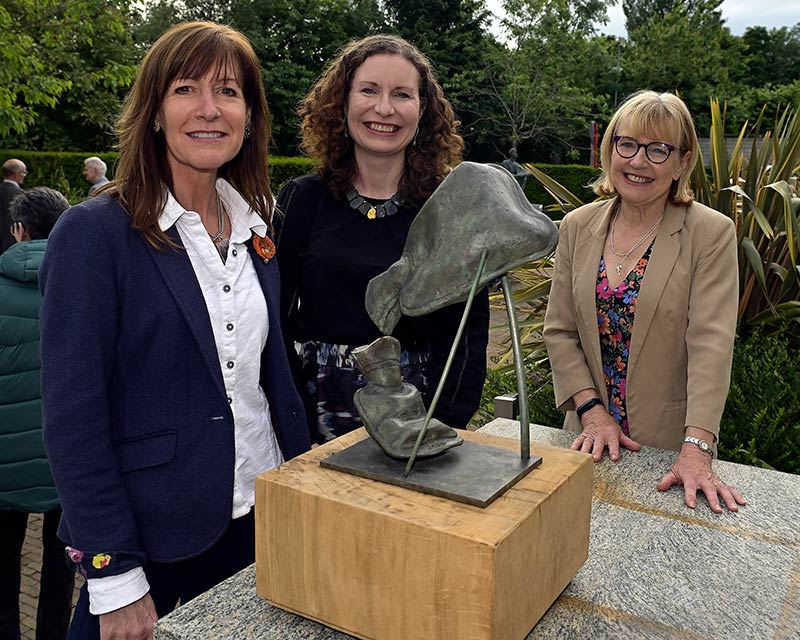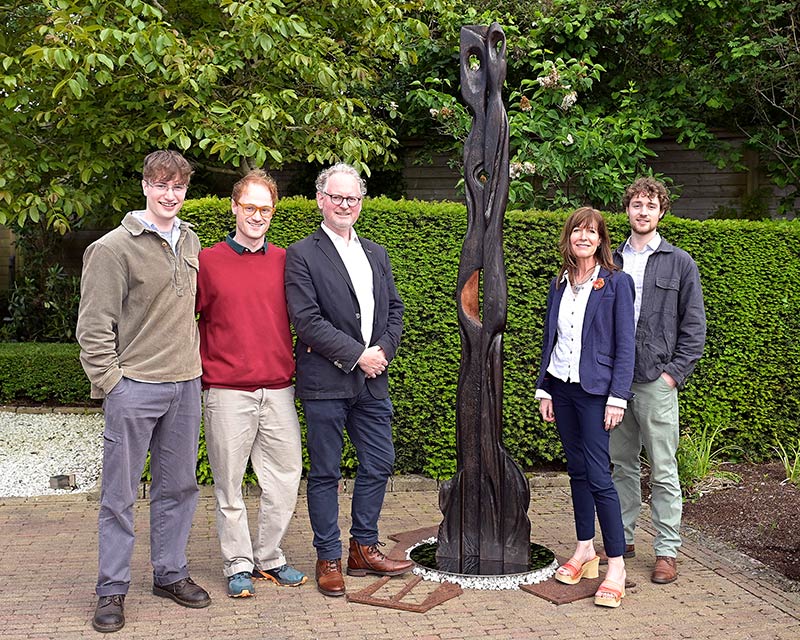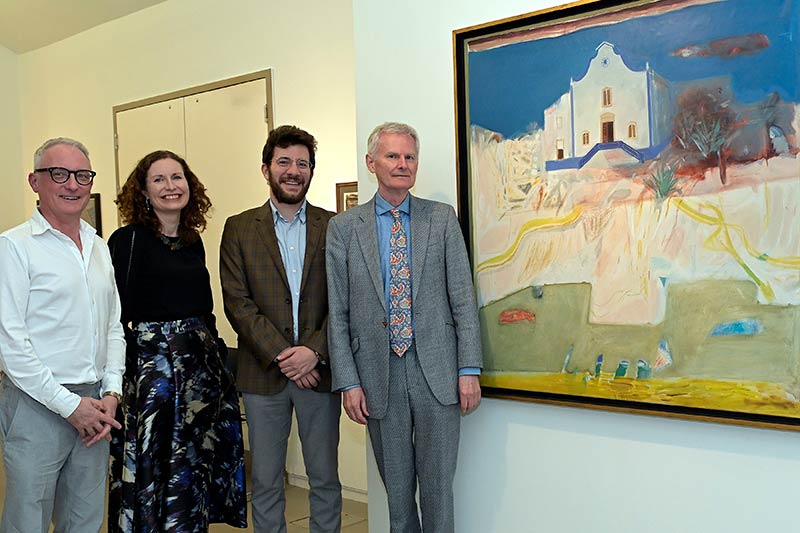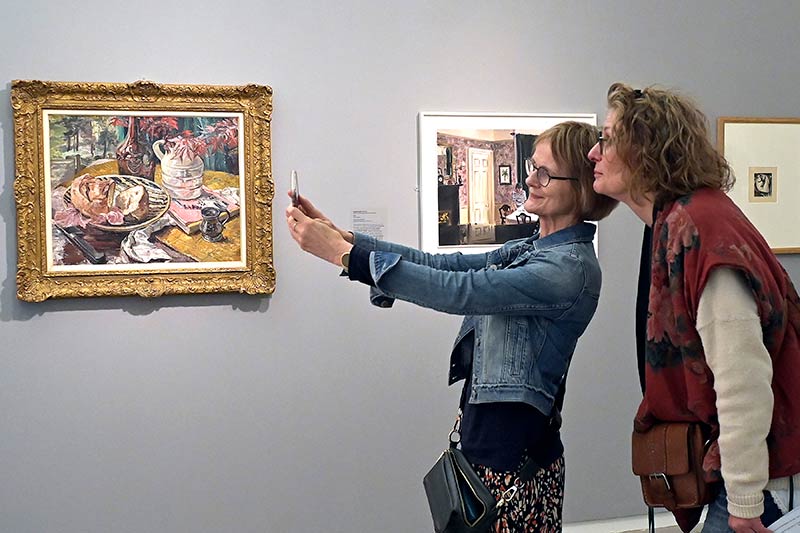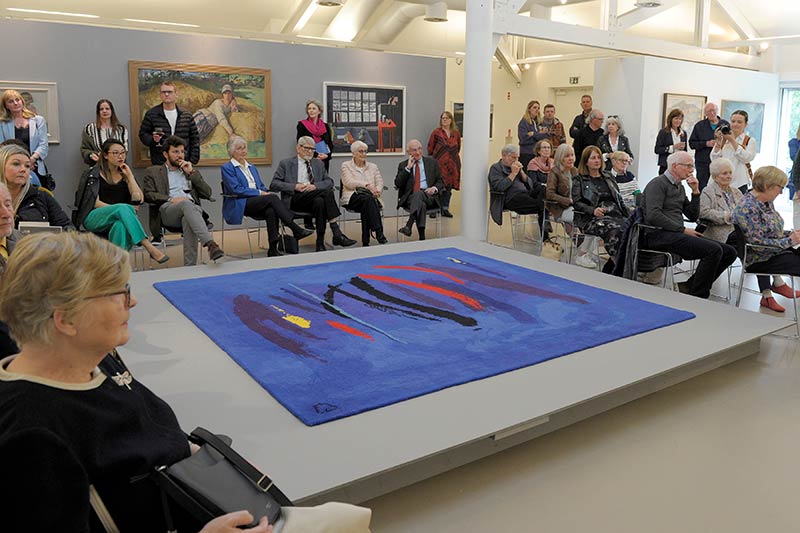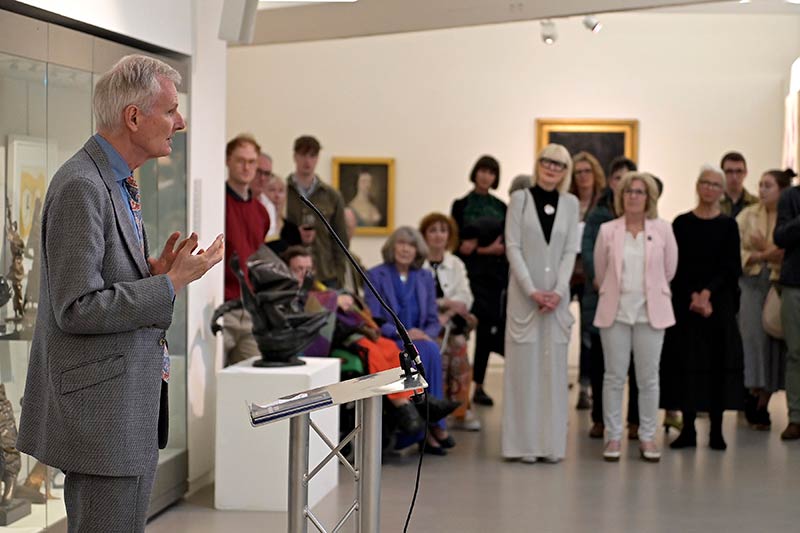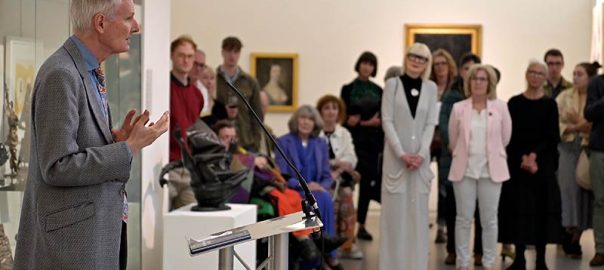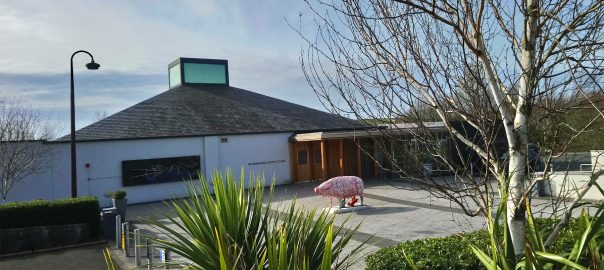Scottish Women Artists: 250 Years of Challenging Perceptions and solo exhibition by North Coast based sculptor Sara Cunningham-Bell
F.E. McWilliam Gallery and Armagh City, Banbridge and Craigavon Borough Council are delighted to present two new exhibitions focusing on the work of talented female artists. Scottish Women Artists: 250 Years of Challenging Perceptions and Congruent, a solo exhibition by North Coast based sculptor Sara Cunningham-Bell, will run at the Banbridge Gallery from the 8 June to 2 September and promise to provide a great day out for locals and visitors to the Borough.
Scottish Women Artists: 250 Years of Challenging Perceptions, brings together the work of over 40 artists. The exhibition highlights key female artists who have changed society’s view over the centuries of what women should and could do, and the significance of work by women artists in Scotland’s cultural history.
Scottish Women Artists is the second collaboration between the F.E. McWilliam Gallery and The Fleming Collection. Dr Riann Coulter, curator of the F.E. McWilliam Gallery & Studio, said,
“We are thrilled to have another opportunity to collaborate with The Fleming Collection whose Scottish Colourist Exhibition in 2018 was so popular with our audiences. Scottish Women Artists will introduce the public to incredible artists who we rarely get the opportunity to see on the island of Ireland.”
James Knox, Director of Fleming-Wyfold Art Foundation, commented,
“In the very first year of its existence in 1968, the Fleming Collection acquired two key paintings by Joan Eardley. It went on to increase its holdings of this important artist and to form in-depth collections of other mid-century greats, Anne Redpath and Elizabeth Blackadder, as well as acquire historical rarities by earlier artists. Today this strategy continues apace and collaborating with the F.E. McWilliam Gallery offers a superb opportunity to celebrate the achievement of Scottish women artists from the eighteenth century to the present day and to bring their work to new audiences.”
Running in conjunction with Scottish Women Artists is Congruent a fascinating new body of work exhibited in the F.E McWilliam sculpture garden, by Sara Cunningham-Bell. Based in her studio on the North Coast, Cunningham-Bell works with storm-felled local timber including larch, maple, beach and oak, combined with upcycled lead and steel, GRP (Glass Reinforced Plastic), concrete and bronze. Made through a variety of processes including carving, casting and sanding, Cunningham-Bell’s sculptures often reveal the layered traces of their creation.
Speaking of this new body of sculpture Sara Cunningham-Bell said,
“In the seventeenth century, philosopher Nicolas Malebranche called attention ‘the natural prayer of the soul’. In the twentieth century, novelist Iris Murdoch spoke of attentiveness as a way of deepening ‘experience to such a degree that a change of consciousness can be achieved’. Our indifference is exposed, interrupted, and challenged. To induce such a remembering, these sculptures are conceived to perpetually provoke attention. I am delighted to have this exhibition on display at F.E McWilliam Gallery sharing my work with others to enjoy.”
Both exhibitions are free entry and will run throughout the summer to 2nd September 2024. Open Monday to Saturday 10am to 5pm.
